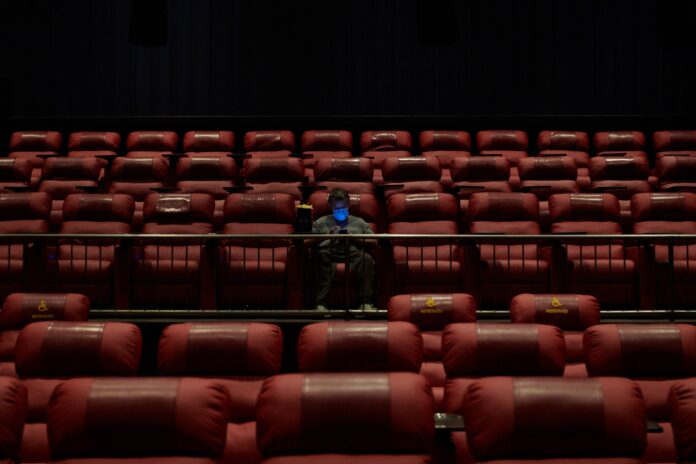Big-budget films are being released for the first time since March, but the willingness of people to sit inside a closed room with strangers for several hours is still uncertain.
Theater executives have pointed to “Tenet” as the film that will send people cascading back into seats and restore a sense of normalcy to an industry that was essentially brought to a standstill by the pandemic. The economics for “Tenet” and other megamovies work only if lots of people leave their houses and buy tickets to see them in theaters. Put another way, if people don’t return to the theaters, it may change what is available to watch — studios may have to start making less expensive films.
Maybe it was the still-threatening coronavirus. Studio research has indicated that the majority of Americans are not ready to immediately return to theaters, even with theater companies promoting a wide array of safety procedures: capacity limited to 50 percent, enhanced air filtration, aggressive cleaning, masks required except when eating or drinking. Nevada reported 632 new coronavirus infections on Friday, reversing a week of declines.
Analysis:
This article tells that people’s willingness to return to movie theaters is still uncertain. The majority are still worried about staying in public space. To cope with it, movie theaters should reform itself to provide a perfectly safe movie place for audiences, or to find a way to shift movie theaters online with the same theatrical experience. Of course, these two options still count on market demands, therefore provide insights for identifying one of the goals of the survey: to understand the willingness of audiences to stay at home or come back to movie theaters.




